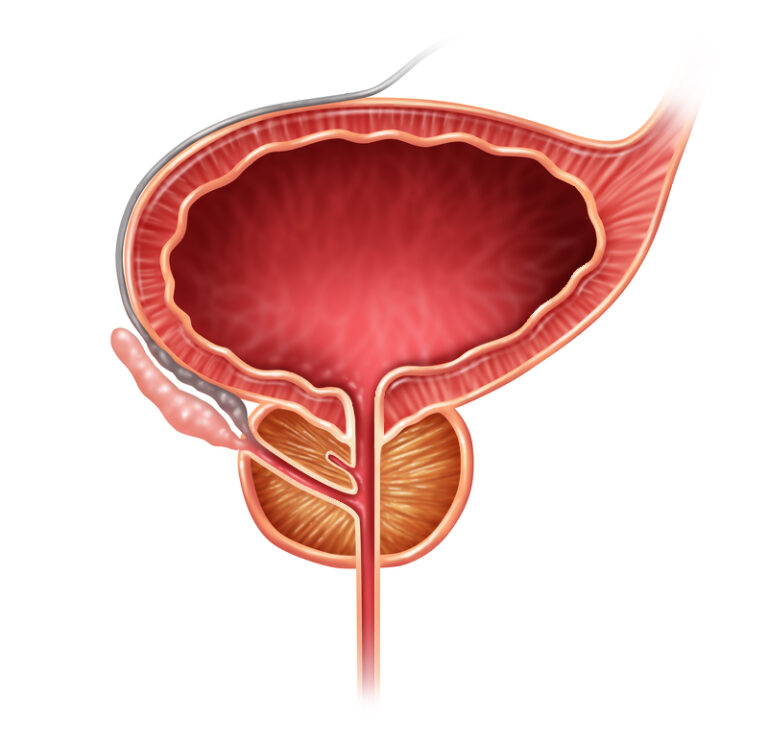The prostate is a muscular gland located just below the bladder in men that produces fluid that makes up part of semen. An enlarged prostate is called benign prostatic hyperplasia (BPH) and is nearly universal in men of advanced age in industrialized nations. About fifty percent of men between the ages of 51 and 60 have BPH, seventy percent between the ages of 61 to 69, and up to eighty percent of men over 70 years. While the condition itself does not raise the risk for prostate cancer, symptoms of BPH can be uncomfortable and progressive, including urinary frequency or dribbling, excessive nighttime urination, or an inability to fully empty the bladder.
The causes of BPH are still being researched, but strong correlations are being made related to testosterone and blood sugar levels. A fascinating 2015 study looked at an indigenous group in the Bolivian Amazon called the Tsimane, hunter-gatherers who live in conditions typical of our preindustrial past, who have almost no incidence of BPH. Researchers found the men to have relatively low levels of testosterone (but normal fertility rates) compared to men in the US, along with significantly smaller prostate size. Researchers also found that the Tsimane had relatively low blood sugar levels. This correlates with increasing epidemiologic evidence correlating diabetes with significantly increased risk of BPH.
Based on these findings, four ways to maintain a healthy prostate might logically include: first, following an ancestral “anti-inflammatory” diet, low in sugars and carbohydrates. This includes eating high-quality, grass-fed meat, wild caught seafood, and nutrient-rich vegetables and fruits, while avoiding grains, sugars, and processed foods. Second, do not curb high quality fats in your diet, including butter and animal fats from healthy, pastured animals, as your body is dependent on quality fat and cholesterol for normal hormone production and balance! Rather, it is oxidized fats from vegetable oils and a high sugar diet that cause the “bad fats”.
Third, if high testosterone increases your risk of BPH, do not turn to hormone replacement therapies. A growing number of studies indicate that populations with higher testosterone also have higher rates of prostate cancer (and treatment of prostate cancer involves blocking testosterone and androgens). Fourth, and finally, maintain a healthy sex life. A 2003 study showed that younger middle-aged men who ejaculated at least once a week had less BPH than men who did not.
If you are already suffering from BPH, are there options other than medication available to you? Yes! There have now been a number of studies revealing both acupuncture and targeted herbal therapies to have a statistically significant effect on alleviation of moderate to severe cases of BPH. These therapies appear to help shrink the prostate over time, and thereby reduce the uncomfortable urinary effects. At Vital Health, we focus on helping you recover your prostate health through combining acupuncture with specific diet recommendations and targeted herb and dietary supplements, so you can regain function and vitality naturally!







